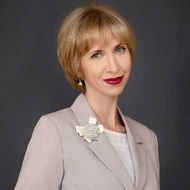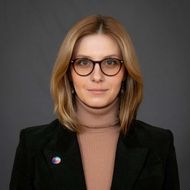Talking Chinese, Writing Articles, and Drinking Tea: What Chinese Club Students Did this Year

The HSE Chinese Student Club at the Faculty of World Economy and International Affairs School of Asian Studies has completed its 2021/22 season. Its participants and organisers talked to the HSE News Service about how they discuss China’s socio-economic, political, and cultural development as part of the club’s events.
The mission of the HSE Chinese Student Club is to provide an environment for informal communication between lovers of the Chinese language and Chinese studies, as well as to popularise knowledge about China. Chinese Club hosts speaking meetings, screenings of films in Chinese with discussions, and meetings with scholars who study China. The Club’s participants prepare interviews with experts on China and publish educational materials on a variety of topics related to China’s traditional culture, history, arts, literature, economics, politics, and Russia-China relations.

Alexandra Sizova, Associate Professor, Deputy Head, School of Asian Studies, Faculty of World Economy and International Affairs
‘The club cooperates with the Chinese Department of the School of Asian Studies. We organise joint events. This year, our Chinese colleagues, School of Asian Studies lecturers Liu Jingpeng and Zhu Fan, participated in the Club’s activities, which are supervised by Maria Efimenko, who is also a lecturer at the School.’

Maria Efimenko, Lecturer at the Faculty of World Economy and International Affairs School of Asian Studies
‘The Club had ten speaking meetings this academic year. The students have met researchers, a calligrapher, a Guo Hua (traditional Chinese painting) artist, and other professionals. The Club’s members include about twenty students who organise meetings and communicate to speakers and guests.’
Vitaly Senotrusov, second-year student of the School of Asian Studies
‘What appeals to me about the Club is the team of likeminded people. Moscow, as well as Russia at large, has only a few places where one can network with people who study China, who love what they do and are willing to promote it.
I am thrilled with the range of the Club’s activities: from films and conversations, to discussing Chinese traditions and holidays, to telling each other about renowned China researchers
Over the year, we have participated in and organised a lot of events, both larger one-time ones and smaller regular meetings. These skills will be useful to us when we start working as professionals.
As a host of the speaking club, I was surprised to see that as we organised online meetings during the year, they attracted not only students of different Moscow universities, but people from various Russian cities, aged 30 to 40, who stopped learning the language a long time ago, but are willing to practice it. One of our regular online guests was Sergey, a plumber-engineer from Novosibirsk. Such a varied audience only piques our interest to continue the speaking club’s activity.
In the next academic year, we are going to continue exchanging experiences with Chinese clubs at other universities, and we will probably organise some joint events.’
Elizaveta Trubnikova, third-year student of the School of Asian Studies
‘I love how the club offers immersion in Chinese culture and informal communications. It is great to learn something new and read articles by students.
It’s always a pleasure to talk, to drink some Chinese tea, or watch a Chinese film
The cinema club is my favourite. We have watched films with other students and Chinese participants. The discussions that followed were thrilling—they gave me a different perspective on what I had heard and watched.’
Anastasia Kamalyagina, third-year student of the School of Asian Studies
‘Chinese club means new experiences, new friends, and, of course, new knowledge about Chinese culture. Each of us can choose a topic to their taste and dive into it, be it arts, literature, economics, green energy, or cinema.'
Talking in Chinese with people who love it as much as you do is always a powerful experience
Rinat Abzalilov, third-year student of the School of Asian Studies
‘The main advantage of Chinese Club is complete freedom. We are free to choose any China-related topic and work on it: write articles, organise meetings and events. The HSE Chinese Club has a lot of participants, and each chooses what they are interested in, but when we organise events, we join our efforts to make them as good as possible. I like the club’s participants: they are all interesting and smart people, and it is a pleasure to talk to them and just be in their company.
We are always happy to see new participants! Come next year—it will be interesting.’
Maria Efimenko
Lecturer, School of Asian Studies
Alexandra Sizova
Associate Professor, School of Asian Studies
See also:
HSE and Sichuan University Sign Cooperation Agreement
On May 20, 2025, HSE University hosted an official delegation from Sichuan University headed by President Wang Jinsong. During the meeting, the universities signed a cooperation agreement.
HSE GSB MBA in Shanghai: Chinese Experience for Russian Executives
The HSE Graduate School of Business has held an international module of its MBA programme in Shanghai. The module gathered 94 participants—top managers of major Russian companies, entrepreneurs, and executives from state-owned enterprises.
HSE and Tsinghua University Strengthen Russia–China Partnership as part of Cross Year of Education
On May 10, a delegation from Tsinghua University—one of China’s leading higher education institutions—paid an official visit to HSE University. The delegation was led by Qiu Yong, Secretary of the CPC Tsinghua University Committee, former President and Chair of the University Council, and member of the Chinese Academy of Sciences.
HSE University Signs Cooperation Agreements with Leading Chinese Universities
On May 8, 2025, in Moscow, in the presence of Russian President Vladimir Putin and Chinese President Xi Jinping, strategic agreements were signed between the HSE University and two of China's top institutions, Peking University and Tsinghua University. The event was attended by Nikita Anisimov, Rector of HSE University, Qiu Yong, Secretary of the CPC Tsinghua University Committee, and Gong Qihuang, President of Peking University. The signing unfolded during the official visit of the Chinese delegation to Russia, coinciding with the commemoration of the 80th Anniversary of Victory Day.
'I Would Be Interested to Speak with Chinese Farmers'
Veronika Smirnova studies China's approach to global food security and has spent a year at Renmin University in Beijing. In this interview with the HSE Young Scientists project, she speaks about Xi Jinping's flagship initiatives, her interest in John Boyd Orr of the UN Food and Agriculture Organization (FAO), and her love for malatang and xiao long bao.
‘The Most Important Lesson I've Learned at HSE Is the Power of Collaboration’
Jingtao Xu (called Andy in English) earned a Bachelor’s degree in Data Science and Business Analytics at HSE University–Moscow and is now studying on the Master’s in Math of Machine Learning. In this interview with the HSE News Service, Andy talks about his plans to develop his robotics research into a commercial product, how online shopping in Moscow has improved since he first arrived, and why now is a good time to capitalise on Russian–Chinese cooperation.
Russian and Chinese Scholars Share Experience of Transformation of Doctoral Education
The Russian and Chinese postgraduate education systems originally borrowed their institutional frameworks from the Soviet Union. However, in the 21st century, they have evolved along different paths. While key performance indicators for postgraduate programmes in Russia are declining, China is seeing a rapid increase in the number of postgraduate students. These contrasting trajectories and the reforms undertaken in each country in recent decades were the focus of a roundtable discussion held as part of the 25th Yasin (April) International Academic Conference.
‘HSE Offers a Wealth of Opportunities, but It’s up to You to Take Advantage of Them’
Zhou Jinyu is a third-year student of the Bachelor’s programme ‘Data Science and Business Analytics’ at the Faculty of Computer Science at HSE University. She talked to the HSE News Service about studying on the double-degree programme, her career prospects, her attitude to artificial intelligence, and why it’s important to step out of your comfort zone.
HSE Expands Cooperation with Chinese Universities
An HSE delegation, led by Rector Nikita Anisimov, visited China for negotiations with the administration of the country’s top universities. The parties agreed to expand bilateral scientific and educational collaboration and signed several documents. In particular, a strategic partnership agreement was established with Peking University, one of the oldest and most prestigious educational institutions in China.
ICEF HSE Takes Part in Study Abroad Fair in China among World's Leading Universities
On March 18, 2025, the Southwestern University of Finance and Economics (SWUFE), Chengdu, China welcomed its counterparts to the SWUFE Study Abroad Fair. Russia was represented for the first time at the fair by a delegation from HSE University, including members of ICEF.


